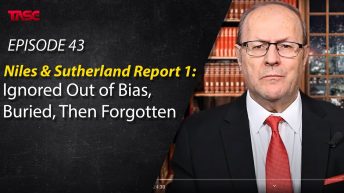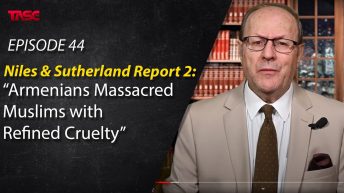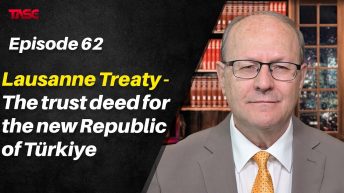In Episode 27, we learned that some 144 prominent Turks, accused of the persecution of the Armenians, were arrested and deported to Malta, purely on the basis of hearsay and horror stories fabricated by the Armenians themselves without any preliminary investigation by the British authorities. The main source of information of the British High Commission in the capital city of Istanbul was a massive Armenian propaganda machinery conducted by the Armenian Patriarchate. French authorities were against those arrests and the deportations which they characterized as “political measures.” None of the accused was arrested based on any evidence, and no dossier in a legal sense ever existed to incriminate any of the. The British Foreign Office had left no stone unturned to prove that the so-called “Armenian massacres” actually took place in Turkey, and consequently, some of these detainees must have been proven guilty. Yet, all efforts and zeal in that regard ended with a complete failure. There was no evidence, no reliable witness, no proof, and no case! The only source that was counted on, the Armenian Patriarchate, furnished only rumors and hearsay fabricated and inflated by themselves. The Turkish Capital was under Allied occupation, and all Ottoman state archives were easily accessible to the British authorities in Istanbul, and if there were any witnesses or any kind of evidence they could have been found easily. The British High Commission was unable to forward to London any legal evidence. There was nothing in the British archives, either, that corroborated the wild accusations of the Armenians, nor did the American State Department archives have anything besides the war time propaganda materials which could not withstand the scrutiny of a competent tribunal. Thus, the much propagandized, politicized, and highly exaggerated and inflated “Armenian massacres” proved to be a sheer fabrications even at the time they purportedly took place. Yet, some sixty years after the burial of those crude allegations, notwithstanding the resounding exoneration of the Turks, Armenians, counting on people’s short memories, have re-invented, revised, and embellished their stories, and launched a new public relations stunt in 1965. The only effective antidote against this scourge is to preach the gospel of truth. Here is the British government’s position on the genocide allegations: “…(I)n the absence of unequivocal evidence that the Ottoman Administration took a specific decision to eliminate the Armenians under their control at that time, British Governments have not recognized those events as indications of genocide. Nor do we believe it is the business of Governments of today to review events of over 80 years ago, with a view to pronouncing them.” Baroness Ramsay of Cartvale, Foreign Office spokesperson, April 14, 1999. And this: ” …The Government, in line with previous British Governments, have judged the evidence not to be sufficiently unequivocal to persuade us that these events should be categorized as genocide as defined by the 1948 United Nations Convention on Genocide, a Convention which was drafted in response to the Holocaust and is not retrospective in application. The interpretation of events in eastern Anatolia in 1915-1916 is still the subject of genuine debate among historians.” Baroness Scotland of Asthal, in a written response, February 7, 2001. The assertion that the British were following a separate imperial agenda or were thinking of exchanging Turkish detainees for British prisoners held by the Nationalists cannot be a serious proposition prior to the defeat of the Greeks at Sakarya. Embarrassing Greek atrocities in the Aegean region and defeat at Sakarya disappointed the British, who were finding it impossible to find evidence against Turkish detainees and were now leaning more towards the concept of a collective punishment of all Turks by the dismemberment of the whole country. All the British propaganda in Blue books and all the disinformation supplied by Morgenthau, his two Armenian assistants and many Armenian informers amounted to a huge nothing that could be used as evidence against Turks at a British courtroom. All hearsay, forgeries, and slanders. At this point, the prospect of prisoner exchanges became possible, indeed desirable. It was true that a legal technicality made it difficult to prosecute governments for actions taken against their own citizens, but Britain circumvented this by devising the concept of a “crime against humanity” back in 1915 when the first accusations were made against the Ottoman government of crimes against Armenians. The legalistic framework was in place. British oil concerns were irrelevant to the issue of POWs exchange since the British already had possession of the oil fields in Mosul since the
Myths and Realities, Uncategorized




Add comment